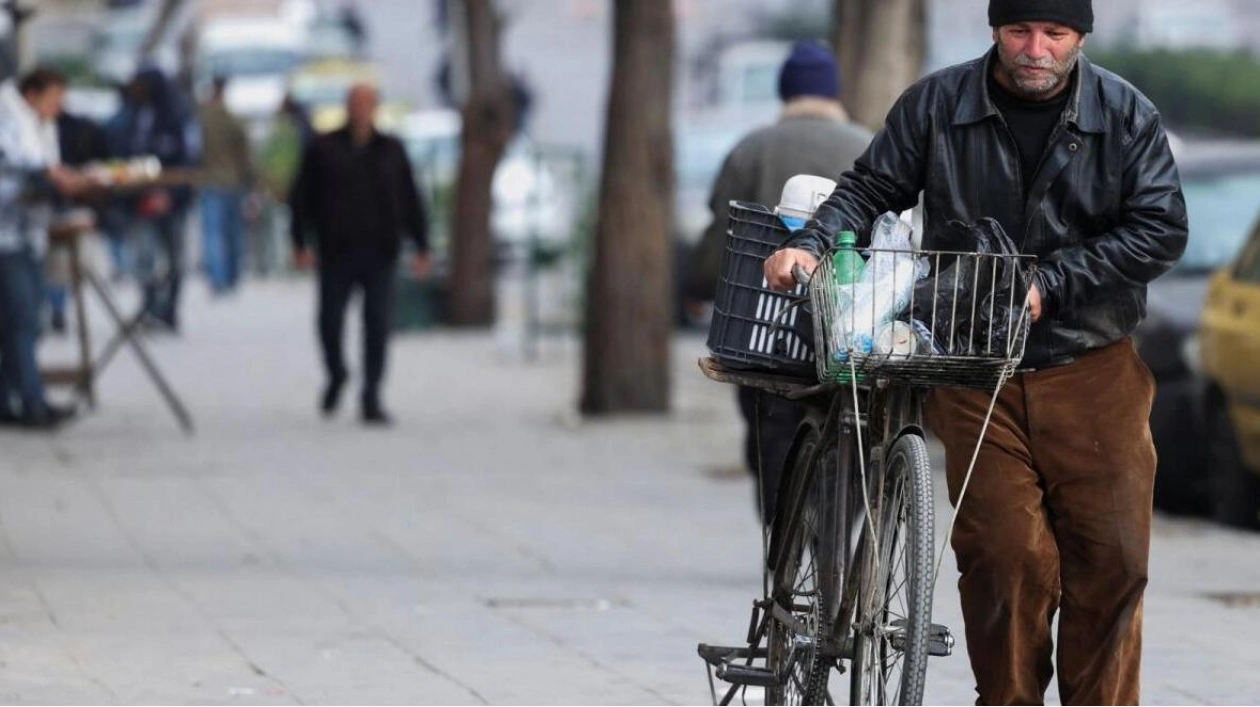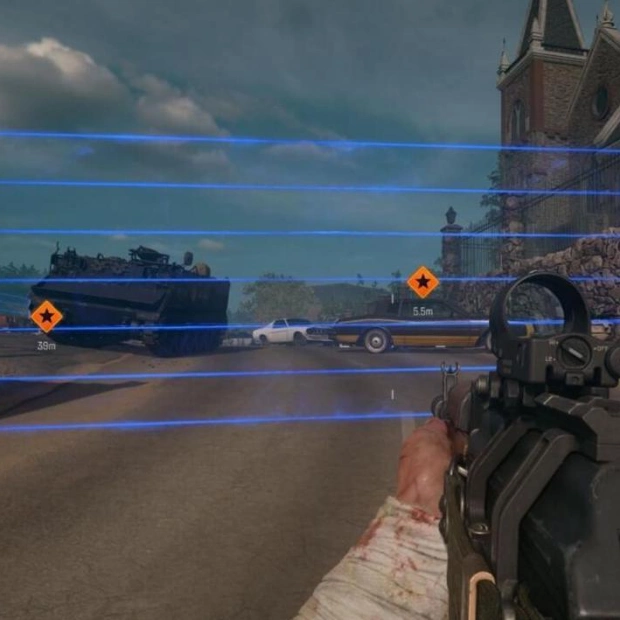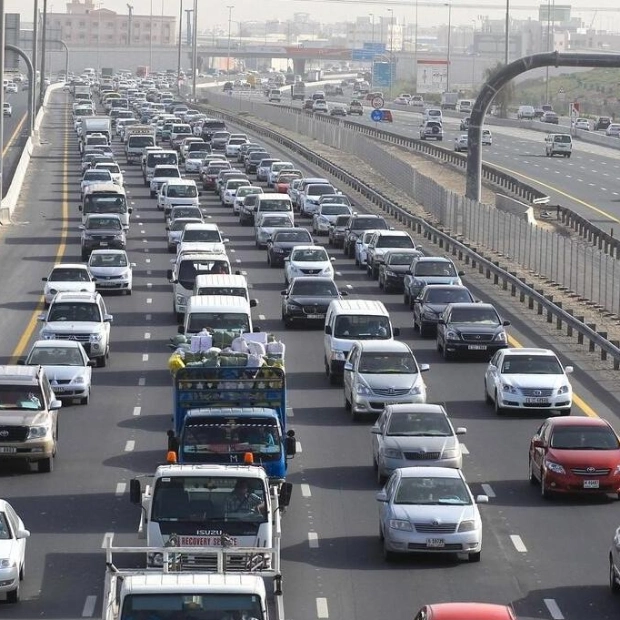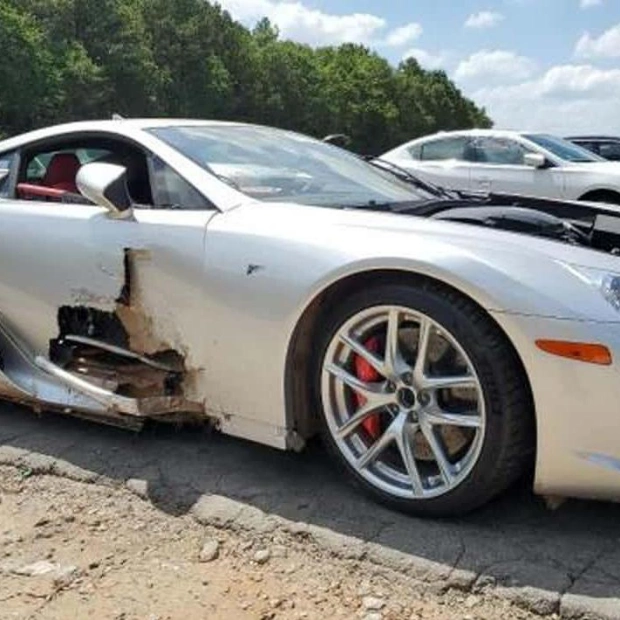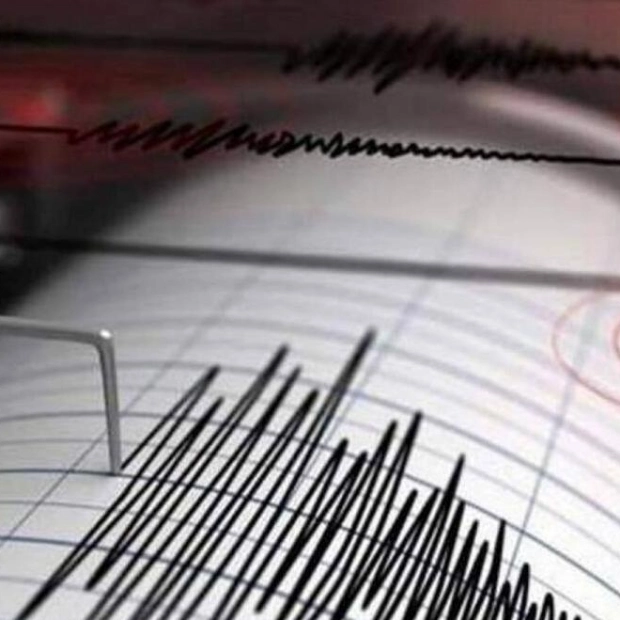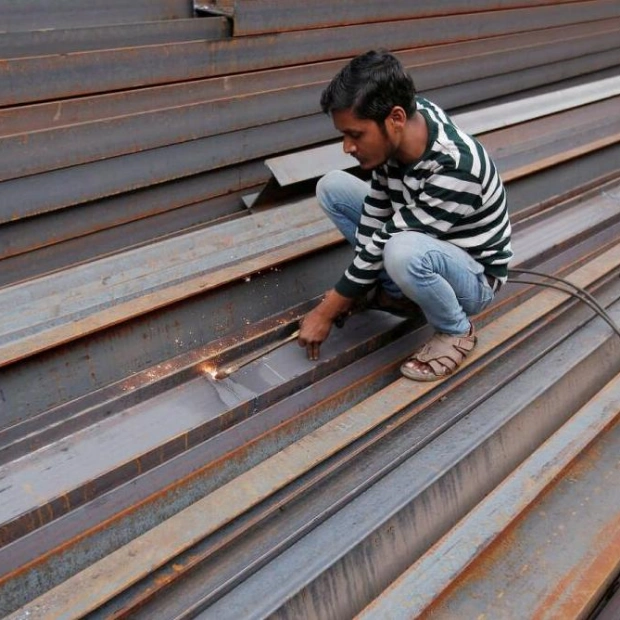A street vendor selling hot beverages walks through the streets of Damascus on December 11, 2024, following the seizure of the capital by rebels who ousted Syria's Bashar Al Assad. — Reuters
In Damascus, life is gradually returning to normal as residents cautiously venture out of their homes in a Syria reshaped by the removal of President Bashar Al Assad. "We were a bit anxious, but since Sunday, we no longer feel afraid," said Lina Al Ostaz, referring to the fall of the Syrian capital to an Islamist-led rebel coalition. The 11-day swift offensive by Hayat Tahrir Al Sham (HTS) and its allies brought an end to over half a century of unchallenged rule by the Assad family. Ostaz, who left her home for the first time since the offensive began, went shopping in central Damascus on Tuesday. She strolled through the market with her husband, exchanging smiles with shoppers and passersby. "We Syrians cherish life, and life continues," said the 57-year-old, who hesitated before revealing she was arrested by government forces in 2015. "I hope the future will be brighter for the younger generation," she added.
A drone view of Yusuf Al Azma Square in Damascus on December 11, 2024. — Reuters
In Qassaa, a predominantly Christian neighborhood, cafes are bustling with patrons enjoying shisha and playing cards. "We were extremely fearful... but we motivated each other to step out and resume our daily routines," said Rania Diab, a 64-year-old doctor who ventured out for the first time to meet friends at a cafe. "However, we remain cautious; we return home early, as the situation is still uncertain," she noted. Diab expressed her hope for "a normal life in our country, safeguarded freedoms... and the ability to live securely with freedom of expression." The curfew imposed on Damascus residents since Sunday has been eased, now starting at 9:00 pm instead of 5:00 pm and lasting until morning.
In the streets, portraits of Bashar Al Assad have been removed. The green, white, and black flag of the revolution now waves, replacing the red, white, and black flag of Syria adopted during Hafez Al Assad's rule. This aerial view shows traffic at Damascus' central Umayyad Square on December 10, 2024. — AFP
Spent bullet casings scatter the expansive Umayyad Square, where celebrants sing revolutionary songs. Armed men from various rebel factions, dressed in fatigues and often wearing balaclavas, patrol the capital's streets. Regime soldiers and police officers abandoned their posts in significant numbers on Sunday. At the police headquarters in Damascus, officers from the self-proclaimed rebel government of Idlib, led by Mohammad Al Bashir, have taken charge. Al Bashir was appointed as the head of Syria's transitional government on Tuesday. A man introduced as the new police chief, who declined to reveal his name, told AFP that they would assume their duties in the coming days. "We will ensure the security of all government buildings and maintain order in the capital," he stated.
In the upscale Malki neighborhood, people gathered at outdoor cafes, while young people held an impromptu demonstration, dancing to the tunes of the 2011 uprising. A drone view shows cars driving in Bab Touma neighborhood in Damascus on December 11, 2024. — Reuters
The peaceful demonstrations were violently suppressed by Assad's forces, igniting a civil war that shattered Syria and claimed over half a million lives. In the historic heart of the capital, the bars in the Christian neighborhood of Bab Touma, which serve alcohol, remain closed. In the open restaurants and cafes, alcohol is not offered, as residents cautiously await the new order under Damascus's new rulers.
Source link: https://www.khaleejtimes.com
